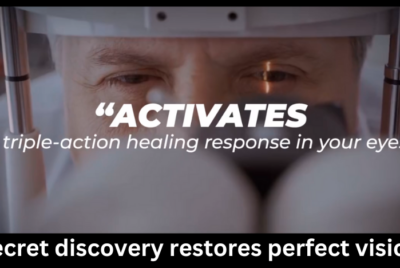Is 20/15 Vision Good
A Comprehensive Guide To Exceptional Eyesight
Discover the wonders of 20/15 vision! Is 20/15 Vision good? As someone who’s deeply passionate about vision health, I can’t stress enough how crucial it is to have clear and sharp eyesight. The term “20/15 vision” often appears among the various vision-related terminologies. But what exactly does it mean? Is 20/15 vision good, and how does it differ from the commonly known 20/20 vision? In this article, I’ll walk you through the intricacies of exceptional eyesight, its significance, and why 20/15 vision is considered outstanding. Whether you are interested in vision health or seeking guidance, I’ve got you covered. Let’s delve into the world of visual acuity!
Understanding Vision Terminology
What Is 20/20 Vision?
20/20 vision is often regarded as the standard for normal visual acuity. It means that at a distance of 20 feet, you can see what an average person with normal eyesight can see at the same distance. Essentially, your vision has clarity and sharpness, enabling you to discern objects and details easily.
Decoding 20/15 Vision
On the other hand, 20/15 vision takes visual acuity to a whole new level. At a distance of 20 feet, you can see what an average person would need to be at 15 feet to see clearly. In simpler terms, you have the gift of seeing objects with exceptional sharpness and clarity, surpassing the capabilities of most individuals.
Benefits Of 20/15 Vision
Having a 20/15 vision offers several advantages. One of the most significant benefits is the ability to see objects with exceptional detail and sharpness, even at a distance. This heightened visual acuity can be especially advantageous in sports, driving, and certain professions requiring precise vision. Imagine being able to spot small details or read signs from a distance that others might struggle with. However, it’s important to note that having 20/15 vision doesn’t mean your eyes are invincible.
20/15 Vision Vs. 20/20 Vision
20/15 vision surpasses 20/20 vision in terms of visual acuity. With 20/15 vision, a person can see at 20 feet what an average person can see at 15 feet. It indicates exceptional clarity and sharpness in vision, allowing for finer detail perception. On the other hand, 20/20 vision denotes normal visual acuity, where a person can see at 20 feet what an average person can see at 20 feet. While 20/15 vision is rarer, both levels of visual acuity are considered excellent and vital for various professions and daily activities.
How Common Is 20 15 Vision?
20/15 vision is relatively uncommon but not extremely rare. It is considered exceptional and estimated to occur in about 1-2% of the population. The prevalence may vary among different demographics and geographic regions. Factors such as genetics, lifestyle, and access to eye care can influence the occurrence of 20/15 vision. Regular eye checkups and maintaining good eye health are essential for preserving exceptional visual acuity and overall well-being.
How Good Is 20/15 Vision
20/15 vision is considered excellent and represents superior visual acuity. With this level of clarity, an individual can see objects with remarkable sharpness and detail. It surpasses the standard 20/20 vision, allowing for better depth perception and enhanced visual experiences. People with 20/15 vision often have an advantage in certain professions, sports, and everyday tasks that require precise vision. However, maintaining overall eye health and regular checkups remain essential for preserving this exceptional eyesight.
The Gift Of 20/15 Vision
20/15 Vision Meaning
20/15 vision means having exceptional visual acuity, where a person can see at 20 feet what an average person can see at 15 feet. It represents superior clarity and sharpness in vision.
Advantages Of Exceptional Eyesight
Having a 20/15 vision comes with a multitude of benefits. Enhanced visual acuity means improved depth perception, better night vision, and the ability to discern fine details quickly. It’s like seeing the world in HD!
The Impact On Daily Life
Exceptional eyesight can significantly improve your daily experiences. From enjoying scenic views to excelling in sports that require precise vision, the advantages of 20/15 vision extend to various aspects of life.
How Rare Is 20/15 Vision?
20/15 vision is relatively rare, but it is considered exceptional. It means that an individual can see at 20 feet what an average person can see at 15 feet, indicating superior visual acuity. While the prevalence of 20/15 vision varies among populations, it is estimated to be less common than the more standard 20/20 vision. A 20/15 vision is often seen as a remarkable gift and can be advantageous in certain professions and activities.
Factors Affecting Visual Acuity
Genetics And Hereditary Influence
Genetics plays a significant role in determining your visual acuity. If you have a family history of exceptional eyesight, there’s a higher chance of inheriting the genes that contribute to 20/15 vision. However, even if it doesn’t run in your family, there are still ways to optimize your eye health and potentially achieve outstanding visual acuity.
Lifestyle And Eye Health Habits
Maintaining a healthy lifestyle can greatly impact your vision. Regular exercise, a balanced diet rich in eye-friendly nutrients, and avoiding smoking can promote eye health and possibly improve visual acuity. Additionally, practicing eye exercises and taking breaks during prolonged screen use can reduce eye strain and enhance overall eye health.
Age-Related Changes In Vision
As we age, our eyes undergo natural changes that can affect visual acuity. Presbyopia, a condition in which the eye’s lens loses flexibility, commonly occurs after the age of 40 and can lead to difficulties in focusing on close objects. Despite these changes, proactive eye care and regular checkups can help maintain optimal vision throughout life.
The Journey To 20/15 Vision
Vision Correction Techniques
For individuals without 20/15 vision, various vision correction techniques can help achieve remarkable visual acuity. These options include wearing prescription eyeglasses or contact lenses. Advances in technology have also led to innovative procedures like LASIK (Laser-Assisted In Situ Keratomileusis) that reshape the cornea to correct refractive errors.
Role Of Nutrition In Eye Health
A nutrient-rich diet can significantly contribute to maintaining healthy eyes. Foods containing antioxidants, vitamins A, C, and E, omega-3 fatty acids, and zinc can promote good eye health. Leafy greens, citrus fruits, fish, nuts, and seeds are some examples of eye-friendly foods.
Regular Eye Exams And Checkups
Regular eye exams are crucial in detecting any potential issues with your eyesight. Comprehensive eye checkups can identify refractive errors, age-related changes, and other conditions early on, allowing for timely interventions and maintaining healthy vision.
Embracing Eye-Friendly Habits
Protecting Your Eyes From Digital Strain
In the digital age, prolonged screen time has become inevitable. However, practicing the 20-20-20 rule (taking a 20-second break every 20 minutes to look at something 20 feet away) can help reduce digital eye strain. Adjusting screen brightness and using anti-glare filters can also minimize eye discomfort.
Importance Of UV Protection
Exposure to harmful ultraviolet (UV) rays from the sun can contribute to eye damage, including cataracts and macular degeneration. Wearing sunglasses with UV protection outdoors helps protect your eyes from these harmful rays.
Restorative Benefits Of Sleep
Adequate sleep is vital for overall well-being, including eye health. During sleep, your eyes replenish and refresh, which is essential for maintaining good vision. Aim for 7-9 hours of quality sleep each night.
Challenges In Maintaining 20/15 Vision
Potential Vision Deterioration
While 20/15 vision is exceptional, it’s not immune to potential changes over time. Factors like age, eye strain, or certain eye conditions may impact your visual acuity. Regular eye checkups can help monitor any changes and take appropriate measures to preserve eye health.
Addressing Age-Related Eye Conditions
As mentioned earlier, age-related vision changes can affect everyone. Conditions like presbyopia and age-related macular degeneration (AMD) are common as we grow older. Early detection and proper management are key to minimizing their impact on visual acuity.
The Role Of Technology In Visual Enhancement
Corrective Eyewear Options
Prescription eyeglasses and contact lenses have long been reliable options for vision correction. The latest lens technologies and frame designs offer enhanced comfort and clarity, allowing individuals to enjoy crisp vision tailored to their needs.
Advancements In Laser Vision Correction
LASIK and other laser vision correction procedures have revolutionized eye care for those seeking a more permanent solution to refractive errors. These surgeries are safe and effective, often leading to reduced dependence on glasses or contact lenses.
Maintaining Lifelong Vision Health
Incorporating Eye Exercises And Hygiene
Just like the rest of your body, your eyes benefit from regular exercise. Eye exercises can strengthen eye muscles, improve focus, and potentially enhance visual acuity. Additionally, adopting good eye hygiene practices, such as avoiding rubbing your eyes vigorously, can prevent eye infections and irritation.
Balanced Diet For Optimal Eye Health
A diet rich in fruits, vegetables, whole grains, and lean proteins provides the nutrients your eyes need to stay healthy. Hydration is also essential, so remember to drink an adequate amount of water daily.
Debunking Myths About Perfect 20/15 Vision
Does 20/15 Vision Mean Superhuman Eyes?
Having a 20/15 vision does not mean possessing superhuman abilities. It simply signifies that you have above-average visual acuity, allowing you to see objects more clearly than most people.
Vision Enhancing Supplements: Fact Or Fiction?
While certain supplements claim to improve vision, their efficacy remains a subject of debate. It’s essential to consult an eye care professional before considering any vision-enhancing supplements.
Looking Beyond Visual Acuity
Eye Health And Overall Well-Being
Remember that good eye health goes hand in hand with overall well-being. Taking care of your eyes involves maintaining a healthy lifestyle, getting regular exercise, and managing stress.
Nurturing Emotional And Mental Clarity
Clear vision not only pertains to the physical sense but also extends to your emotional and mental clarity. Engaging in mindfulness practices and stress-reducing activities can positively influence your outlook on life.
Jobs That Require 20/15 Vision
Jobs that require 20/15 vision often involve tasks demanding exceptional visual acuity and precision. Some of these professions include military pilots and air traffic controllers, where keen eyesight is critical for identifying distant objects and ensuring safe air operations. Jobs in law enforcement, such as sharpshooters and snipers, require superior visual clarity to hit distant targets accurately. Additionally, careers in professions like professional athletes, particularly in sports like baseball or golf, benefit from excellent vision to track fast-moving objects and make split-second decisions. Other roles may include radiologists and medical professionals who rely on sharp vision to interpret intricate details in medical images. Overall, jobs that necessitate 20/15 vision prioritize visual accuracy and heightened performance in specific tasks.
Is 20/15 Vision Good – Conclusion
In conclusion, the 20/15 vision is exceptional and has numerous advantages that enrich your visual experiences. While genetics plays a role, there are various proactive measures you can take to maintain excellent eyesight. From proper nutrition and eye exercises to staying vigilant with regular eye checkups, the journey to exceptional vision health is within reach. Remember to cherish your eyesight and embrace healthy habits to continue seeing the world with sharp clarity.
Remember, your eyes are precious, and caring for them should be a priority. If you have any concerns about your vision, don’t hesitate to consult an eye care professional for personalized advice and guidance. Here’s to a lifetime of healthy eyes and exceptional vision!
Please note that this article should not replace professional medical advice. Consult a healthcare professional for an accurate diagnosis and tailored treatment plan.
Frequently Asked Questions (FAQs)
Is 20/15 vision better than 20/20 vision?
Yes, It is considered superior to 20/20 vision, providing even clearer and sharper eyesight.
Can I achieve a 20/15 vision through natural means?
While genetics plays a role, adopting a healthy lifestyle and taking care of your eyes can potentially improve visual acuity.
Is 20 15 a good vision score?
Yes, It is an outstanding vision score. It signifies exceptional visual acuity, allowing individuals to see objects with exceptional clarity and sharpness, surpassing the standard 20/20 vision.
What is the ideal age for LASIK surgery?
LASIK surgery is generally recommended for individuals above 18 years old once their vision has stabilized.
Can eye exercises really improve vision?
Eye exercises can help strengthen eye muscles and improve focus, which may contribute to better visual acuity for some individuals.
Does using a computer or smartphone harm my eyesight?
Extended screen time can cause digital eye strain, but following eye-friendly habits can minimize its impact on your vision.
Does 20/15 vision prevent age-related vision changes?
While this vision is excellent, it does not entirely prevent age-related vision changes. Regular check-ups are still essential.
Is 20 30 vision better than 20 15?
No, 20/15 vision is better than 20/30 vision. In 20/15 vision, a person can see at 20 feet what an average person can see at 15 feet, indicating superior visual acuity compared to 20/30 vision.
Is Vision 20 15 better than 20 20?
Yes, It is better than 20/20. With 20/15 vision, a person can see at 20 feet what an average person can see at 15 feet, indicating superior visual acuity and sharper clarity.





